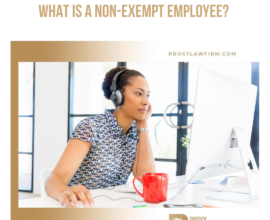If you provide a good service, it is more than likely a customer will leave a nice tip. But what happens with that money? Tips are a huge part of the service industry, and there are some misconceptions about them that can affect workers. For example, who can receive and keep it? Can employers distribute it as they think it’s best? California has certain takes as a state that are different from others. Here are some crucial facts about tips:
- Tips belong to the employees and not to the employer. Employers are not entitled to decide how or if tips will be distributed, and much less keep a portion for themselves (this includes owners, managers, and supervisors).
- Tip pooling is allowed. However, only employees who belong to the “chain of service” are eligible for the tip pool. This includes servers, bartenders, hosts, and bussers. Cooks, dishwashers, and cashiers should not be considered. With this in mind, managers and supervisors cannot participate in the pool even when they provide direct table service.
- Tips do not count towards minimum wage obligations from the employer. This is fundamental! Some employers pay workers less than the minimum wage because they say the employees will earn the difference in tips (this is called tip credit), which is not allowed in California.
- If tips are left on credit cards, employers can deduct credit card processing fees from the amount received. This depends on the state regulations and laws. In California, employers should provide the full tip left by the customer to the employee and pay for the card processing fees themselves.
- Some restaurants add a “mandatory service charge” on bills for large tables and private parties. This is not considered a tip, and employers can keep this money. In California, this is considered part of the contract between the patron and the establishment and not an acknowledgment of good service. While some employers may choose to share it with employees, it’s not mandatory.
Do you earn tips? As a service worker, keeping these facts in mind will help you receive tips according to California’s legal protections and regulations. If your employer is not paying you tips as he should, call us for a free consultation.





